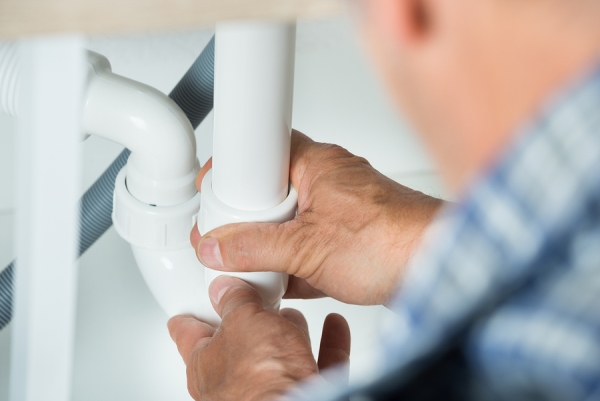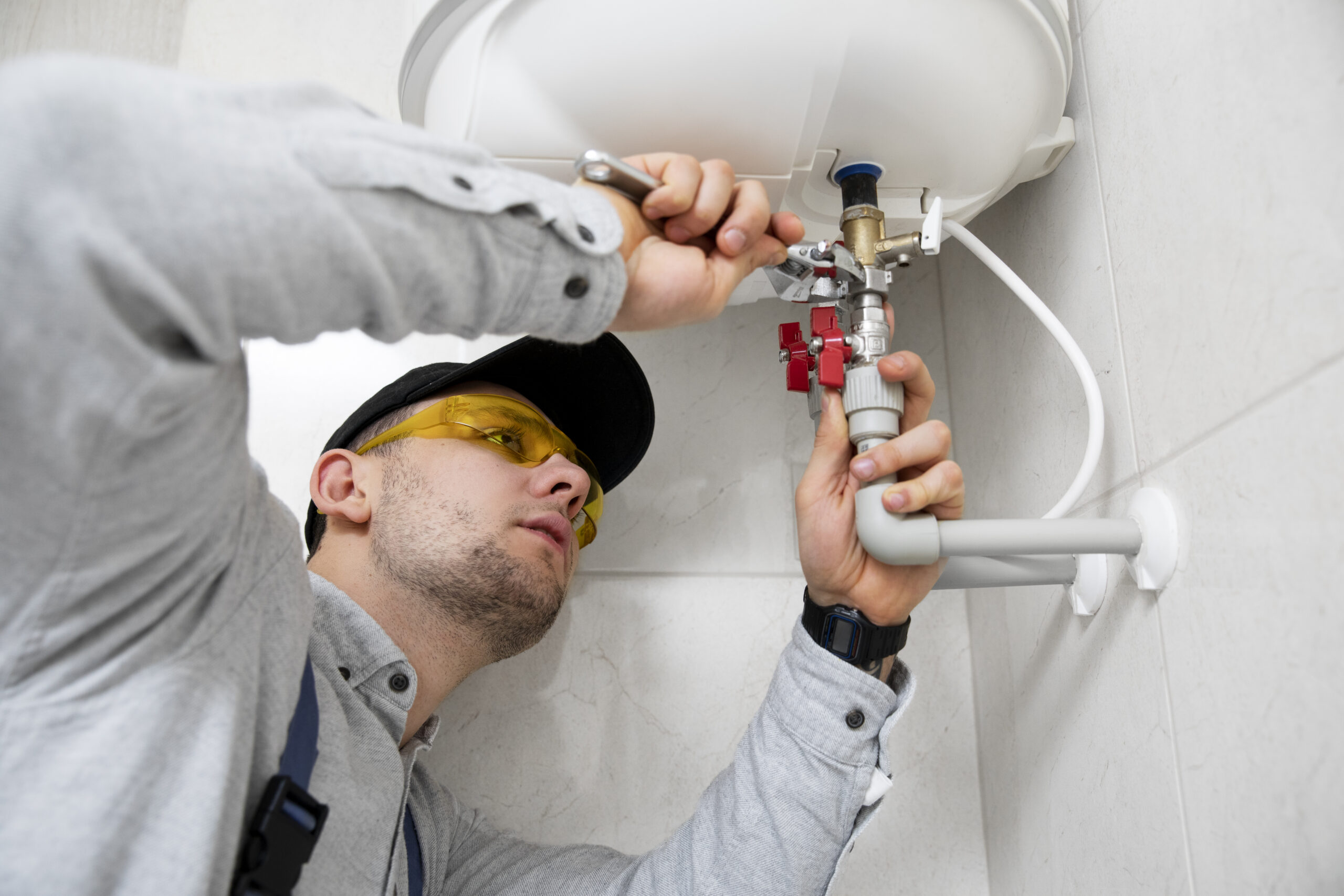We've stumbled upon this post on What to Do During a Plumbing Emergency listed below on the web and accepted it made perfect sense to share it with you in this article.

Plumbing emergency situations can strike at any time, causing tension and prospective damages to your home. Whether it's a ruptured pipeline, a clogged drain, or a leaky faucet, recognizing how to handle the scenario until an expert plumbing technician gets here can save you from additional difficulties. This article offers crucial emergency plumbing ideas to aid you mitigate damage and gain back control throughout a pipes situation.
Shut off the Water System
The first step in any plumbing emergency situation is to shut off the water system. For local problems, such as a dripping faucet or commode, shut off the shutoff near the fixture. When it comes to a major leakage or burst pipeline, find your home's main water shut-off shutoff and turn it off immediately. Understanding the location of these shutoffs in advance can conserve useful time during an emergency.
Address Small Leakages with Momentary Repairs
Small leakages can swiftly end up being significant problems if left uncontrolled. Utilize these short-term solutions till expert help gets here:
While these fixes aren't permanent, they can aid lessen water loss and damage.
Unclog Drains Securely
A blocked drain can be an irritating and untidy issue. Here's exactly how to tackle it:
If these techniques don't function, avoid using excessive pressure, as it may intensify the blockage.
Manage Overflowing Toilets
An overflowing commode can create prompt disorder. Below's what you must do:
Shut Off Your Water Heater
In particular emergencies, such as a burst pipe, it's important to turn off your water heater. This protects against overheating or damages to the system when water stops moving. Shut off the power supply to the water heater (electric or gas) and allow it cool off to stay clear of prospective hazards.
Momentarily Stop a Ruptured Pipeline
A burst pipeline can lead to substantial water damage in minutes. To minimize the problem:
Call an expert plumber quickly to attend to the problem completely.
Manage Frozen Pipes Thoroughly
In cooler climates, frozen pipelines are a common emergency situation. If you believe a frozen pipeline:
Protect against Further Damage
Taking fast activity to minimize damage can conserve you money and time in the long run. Here's exactly how:
. Have an Emergency Plumbing Set
Prepare a fundamental plumbing emergency set to manage small concerns properly. Your package needs to consist of:
Having these devices on hand can make a significant difference in your ability to manage emergencies.
Know When to Call a Professional.
While quick fixes can help momentarily, particular pipes concerns call for instant expert interest. Call a plumbing technician if:.
Immediately calling an expert guarantees the issue is resolved properly and avoids further difficulties.
Verdict.
Plumbing emergencies can be frustrating, however with the right expertise and tools, you can take care of the circumstance effectively up until help shows up. By shutting off the water supply, attending to small leakages, and using momentary fixes, you can lessen damage and keep your home safe. Bear in mind, these suggestions are short-lived services; constantly consult a certified plumber to deal with the source of the trouble. Preparation and fast thinking are your finest allies in any kind of plumbing emergency.
Expert Tips for Emergency Plumbing Repairs
Plumbing emergencies can be incredibly stressful and inconvenient. Whether it’s a burst pipe, a clogged drain, or a leaky faucet, these common plumbing emergencies need immediate attention to prevent further damage to your home. But before you panic, it’s important to understand the basics of plumbing repairs and the steps you can take to address these emergencies. In this article, we will share some expert tips to help you navigate through these situations and minimize potential water damage.
Identifying Common Plumbing Emergencies
Leaky pipes and faucets Clogged drains and toilets Burst pipes Low water pressure Water heater problems Essential Tools for Plumbing Repairs
Plunger: Useful for unclogging toilets and drains Adjustable wrench: Needed for tightening or loosening nuts and bolts Pipe wrench: Ideal for gripping and turning pipes Tape measure: Necessary for accurate pipe measurements Plumber’s tape: Helps create watertight seals Understanding Emergency Plumbing Services
Emergency plumbing services are designed to provide immediate assistance for unexpected plumbing issues that can cause significant damage to your home, business, or health. These services are typically available 24/7 and are staffed by experienced plumbers who can quickly diagnose and repair a wide range of plumbing problems.
When a plumbing emergency strikes, time is of the essence. Whether it’s a burst pipe flooding your basement or a gas leak posing a serious risk, emergency plumbing services ensure that help is just a phone call away. These professionals are equipped with the tools and expertise to handle any situation, minimizing damage and restoring your plumbing system to proper working order.
What Constitutes a Plumbing Emergency?
Burst pipes or water supply lines: These can cause extensive water damage and need immediate repair to prevent flooding. Gas leaks or suspected gas leaks: Gas leaks are extremely dangerous and require prompt attention to avoid potential explosions or health hazards. Sewer backups or overflows: These can lead to unsanitary conditions and significant property damage. Clogged drains or toilets causing water to overflow: Overflowing water can damage floors, walls, and other structures. Leaks or water damage causing structural damage: Persistent leaks can weaken the structural integrity of your home or business. No hot water or heating: A lack of hot water can be more than an inconvenience, especially in colder months. Common Causes of Plumbing Emergencies
Aging or corroded pipes: Over time, pipes can deteriorate, leading to leaks or bursts. Improperly installed or maintained plumbing fixtures: Faulty installations or lack of maintenance can result in unexpected failures. Tree roots or other debris infiltrating your sewer line: Roots can grow into pipes, causing blockages and backups. Frozen pipes or water supply lines: In colder climates, pipes can freeze and burst, leading to significant water damage. High water pressure or sudden changes in water pressure: Excessive pressure can strain pipes and fixtures, causing them to fail. Natural disasters such as floods or earthquakes: These events can disrupt your plumbing system and cause severe damage. Steps to Minimize Water Damage
Locate the water shut-off valve: Knowing where the valve is can help you quickly cut off the water supply to the affected area. Turn off the water heater: If there’s a risk of water coming into contact with the heating element, make sure to turn off the water heater to avoid potential accidents. Open faucets and drain pipes: By opening faucets and drain pipes, you can relieve pressure and empty any standing water. Collect and contain water: Use towels, buckets, or bins to collect water and prevent it from spreading to other areas of your home. https://leecountyplumbingandwellservice.com/expert-tips-for-emergency-plumbing-repairs/

I have been very fascinated by What to Do During a Plumbing Emergency and I really hope you enjoyed reading our post. Sharing is good. Helping others is fun. Thank you for taking the time to read it.
Website